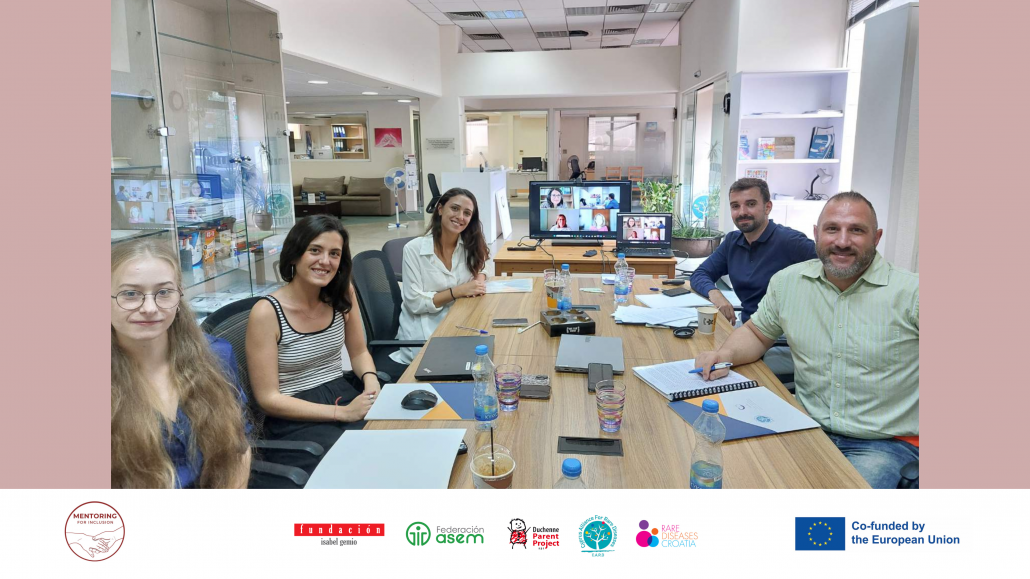New online meeting of the ERASMUS+ EDUCATIONAL AID KITS IN THE FIELD OF RARE DISEASES
On 14th March 2025, the partnership of the Erasmus+ project EDUCATIONAL KITS IN THE FIELD OF RARE DISEASES, co-funded by the European Union, held a new online meeting to analyse and monitor the development of the results.
During the meeting, work continued on the progress of the intellectual outputs of the project, such as the methodological guide which will be translated into several languages and the educational kits which, in addition to being available in English and Spanish, will have a wide range of open educational resources aimed at the successful inclusion of students affected by rare diseases in Vocational Education and Training (VET).
In this way, the project involves different professionals from health, education, social services and sport whose training is essential to develop specific skills to adequately respond to the needs of people affected by rare diseases. The project will also rely on a network of Rare Disease experts to provide advice and guidance.
Rare diseases represent a series of obstacles that have a profound impact on the lives of those affected, including delays in diagnosis, which, on average, can last up to five years. Moreover, its chronic and progressive nature has a negative impact on the mobility, autonomy and emotional and economic stability of patients and their families.
During the meeting, the partners continued to prepare the dissemination activities of the project. In addition, the partnership started to prepare the agenda of the third and last transnational face-to-face meeting of the project that will take place in Zagreb (Croatia) on Monday 26 May 2025.






















